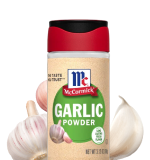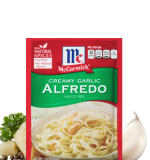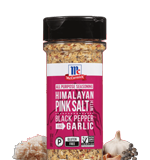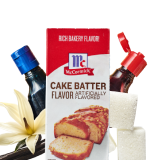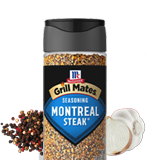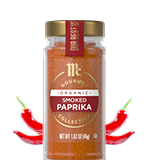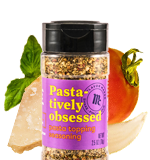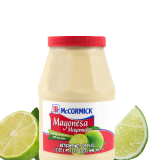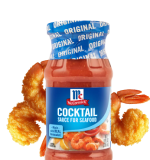
Settling the Dried Herb VS. Fresh Herb Debate Once and For All

By: McCormick Kitchens
June 30, 2025
Instructions
Some kitchen debates seem to never die: gas versus electric range, cast iron versus nonstick skillet, butter in the fridge or on the counter. But perhaps no argument divides home cooks more fiercely than those regarding shortcuts, and in particular the fresh-herb-versus-dried-herb showdown.
To be fair, some kitchen shortcuts may lead to inferior results. For example, few people would argue that canned frosting beats a quick powdered sugar/butter/vanilla extract concoction. However, while it may sound like heresy in today's farm-to-table world, dried herbs are often superior to fresh. There, we said it.
Even more critical as shoppers continue to watch their wallets is the fact that dried herbs can be far more cost-effective.
Let’s explore why those little jars can yield a smaller food bill and better results, along with tips on maintaining the longevity of your dried herbs.
Three Reasons Dried Herbs are More Cost-Effective
1. Dried herbs last longer.
The “fresh at all costs” mentality has led home cooks to spend premium prices for what often end up being wilting herbs that lose their potency and aroma within days.
The extended shelf life dried herbs offer — from one to more than three years — runs circles around the short timeframe that fresh herbs maintain their kick. With dried herbs, you won’t see your money literally going in the trash, especially in the case of less-common spices that might only fit one recipe in a month’s repertoire, like star anise that shines in Vietnamese food or saffron for a traditional Spanish paella.
2. Dried herbs offer more flavor intensity.
A little goes a long way with dried herbs, meaning that jar you bought a while back will offer an ongoing return on investment, with a smaller amount required to achieve the same flavor profile as fresh herbs. The reason dried herbs pack an extra punch is because the drying process intensifies their essential oils, resulting in a more concentrated boost to your cooking.
And they’re more consistent in their intensity. Given that fresh herbs vary in strength, you might have to use even more of the fresh variety to attain the desired benefits.
3. Dried herbs are more convenient.
If time is money, dried herbs win hands down. There’s no laborious washing, chopping, grinding, mincing, grating, stemming, etc. This time saved may make you that much more likely to cook a healthy meal for your family after a busy day, rather than relying on costly takeout or delivery. In addition, dried herbs are available year-round, which means you won’t have to pay more for out-of-season varieties or those affected by weather disruptions.
How to Preserve Your Investment in Dried Herbs
Once you’ve wisely committed to dried herbs, you want to make sure they last as long as possible. Here are some tips.
1. Buy the right spices (for your eating habits).
You don't need to stock every herb and spice available, especially when you’re watching your food budget. Start with the versatile basics that work across multiple cuisines: Think garlic powder, onion powder, paprika, oregano and basil, with high-quality salt and pepper grinders.
Then consider adding multi-use spices that align with regional dishes you have in frequent rotation, such as crushed red pepper flakes and rosemary for Italian entrees, and chili powder and ground coriander for Mexican fare.
The key is buying spices you'll actually use for more exciting meals that don’t break the bank.
2. Store them carefully.
Regularly check dried herbs and replace them if you notice a decline in color, aroma or flavor. These tips will help prevent spice spoilage:
- Store in a cool, dark place away from direct sunlight and heat sources.
- Use airtight containers with tight fitting lids to prevent moisture and air from degrading the herbs. One super herb-saver is the SnapTight™ technology from McCormick®, which locks in freshness and aroma for better-tasting meals. Our FlavorSealed™ lids keep spices as fresh as the day they were packed.
- Use clean, dry utensils when scooping out herbs.
3. Use dried herbs strategically.
Many recipes might designate fresh herbs, but you can easily convert these to a dried option. A common rule of thumb is to substitute one teaspoon of dried herbs for one tablespoon of fresh.
But here, “season to taste” is a useful directive. You may want to start on the lower end, then add more as needed to achieve the desired intensity without overpowering the dish.
Also, note that dried herbs and fresh herbs can coexist in your repertoire. While dried herbs are ideal to add a kick to soups, sauces, stews and more, you may also decide to choose a sprinkle of fresh herbs to lend visual appeal as an attractive garnish.
4. Enjoy them frequently.
Since dried herbs deliver better value and longer-lasting flavor, don’t be shy about reaching for them regularly to transform everyday meals. Here are five ways they can add a spark to ordinary foods.
- Sprinkle cinnamon in coffee.
- Mix oregano into olive oil for dipping bread.
- Season popcorn with garlic and parmesan.
- Top avocado toast with Everything Bagel Seasoning.
- Stir sage into butter to liven up pasta.
There’s no need to consider dried herbs a compromise. In reality, they are the smart, cost-efficient choice to elevate your favorite dishes while stretching your food budget.

